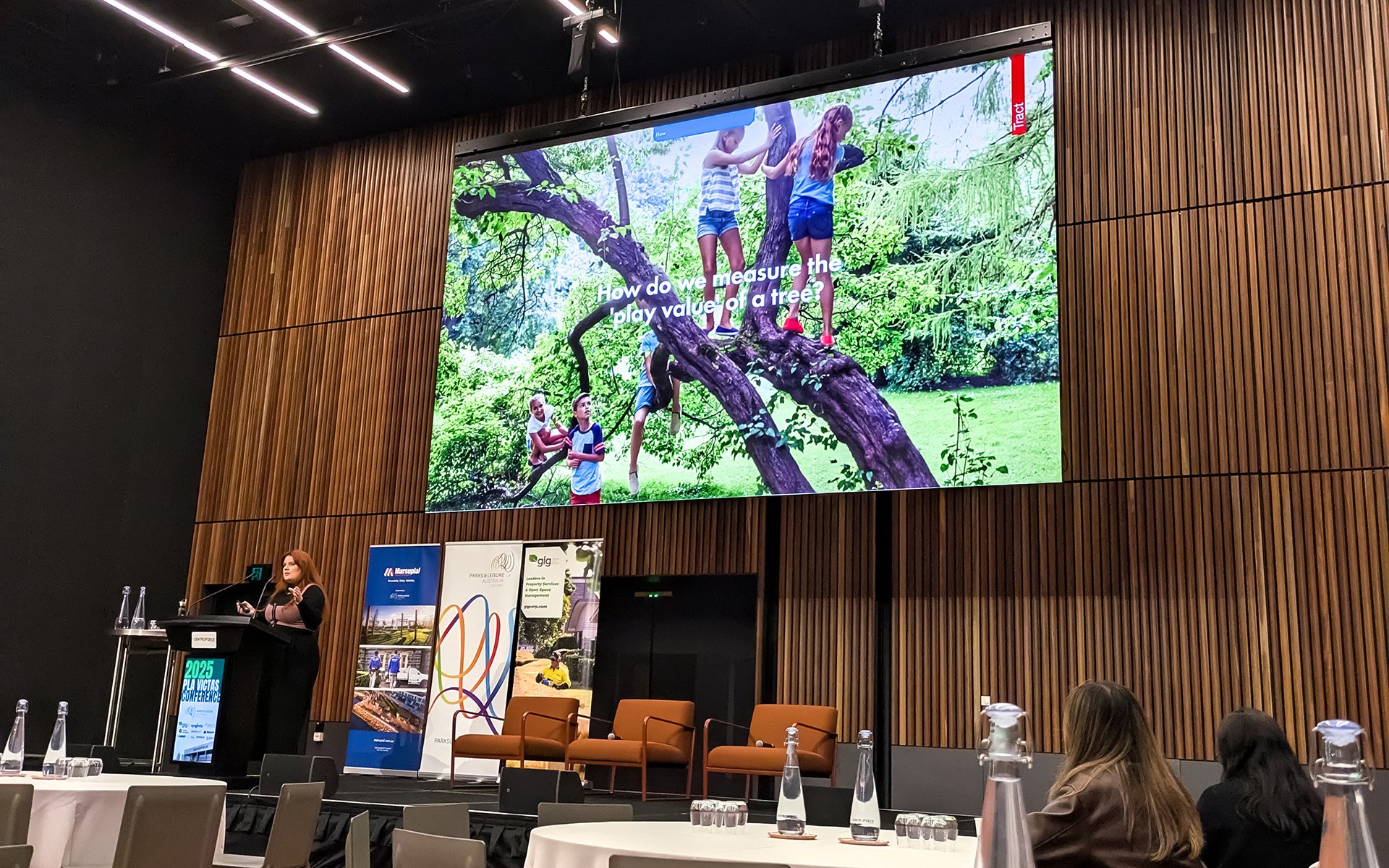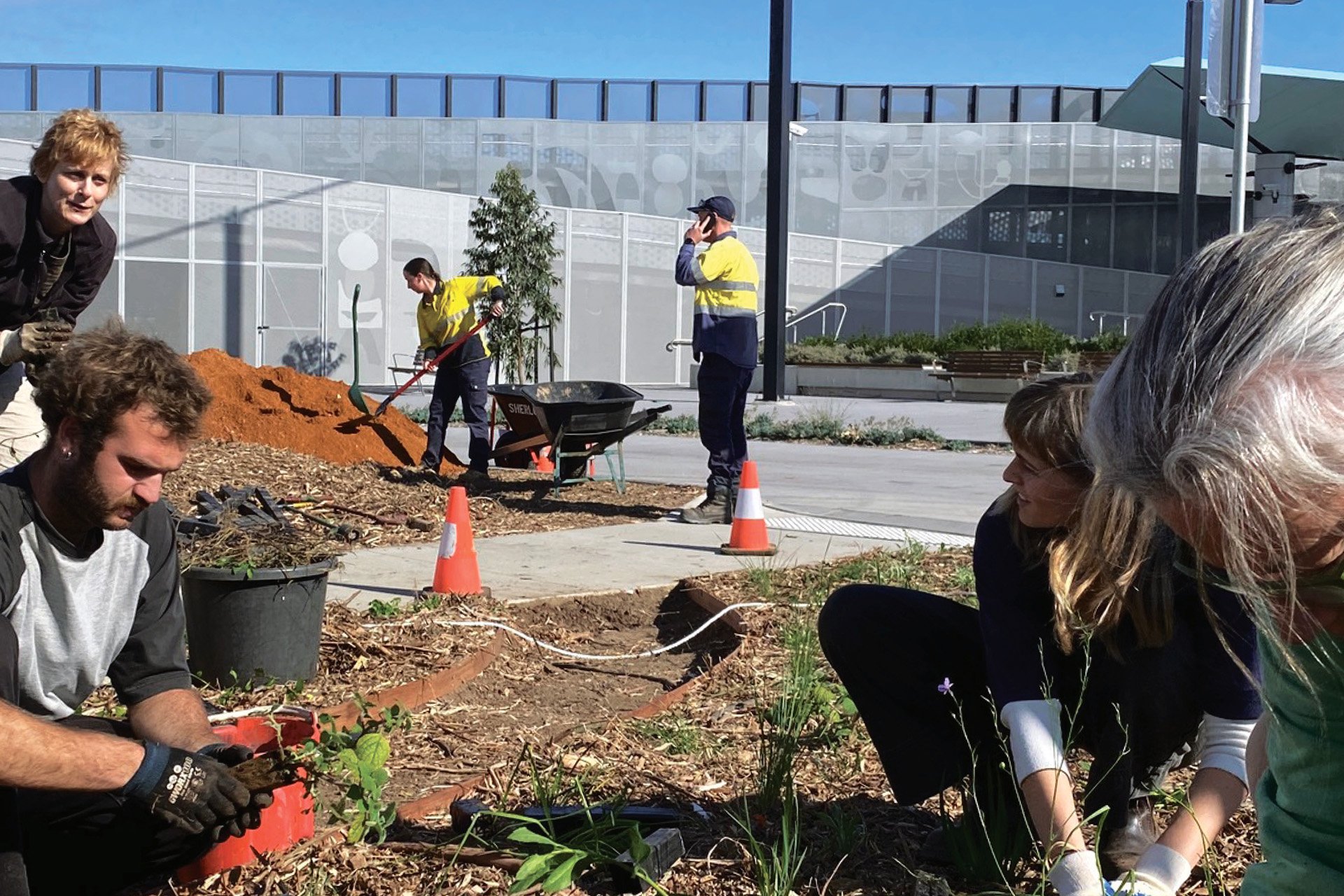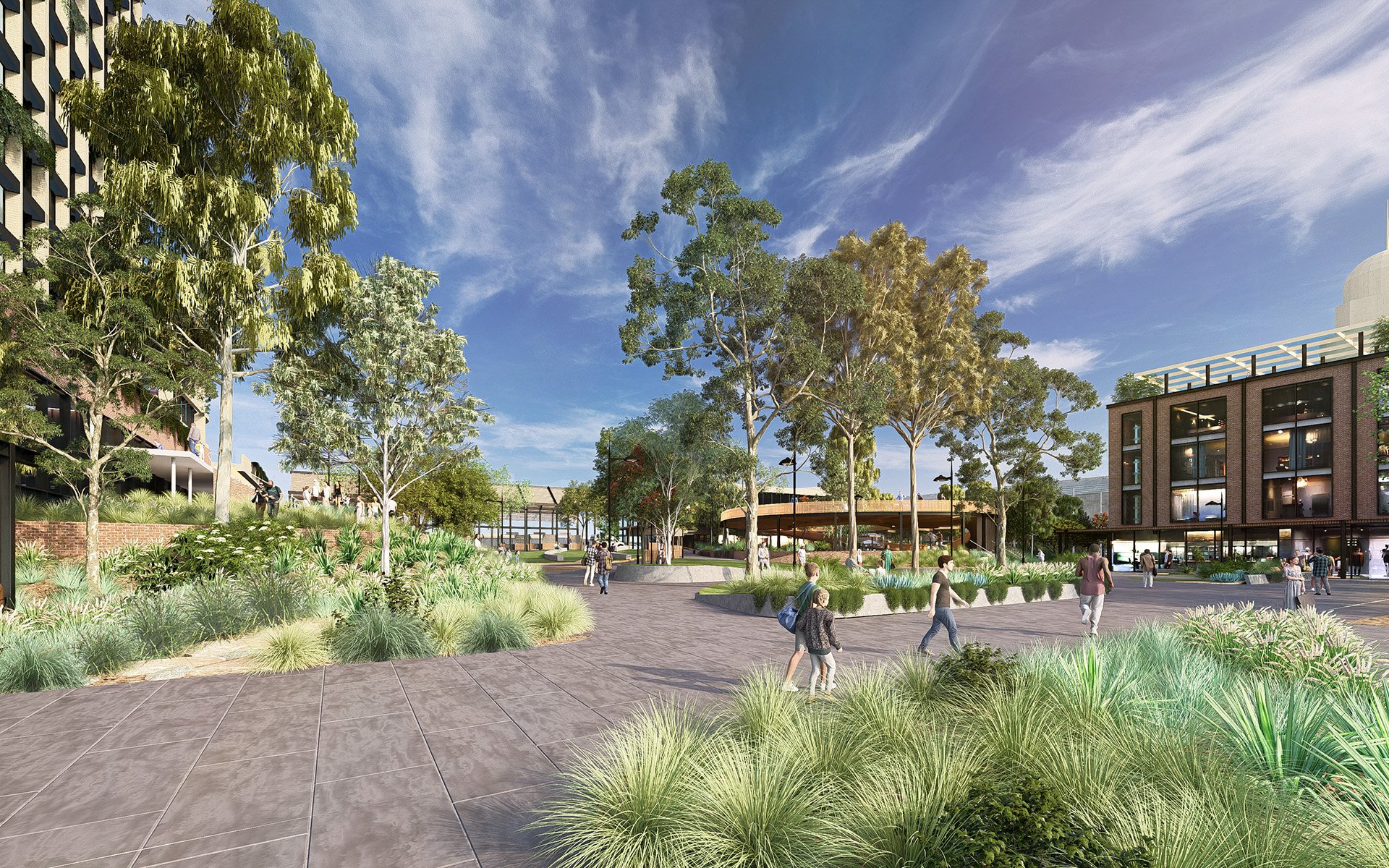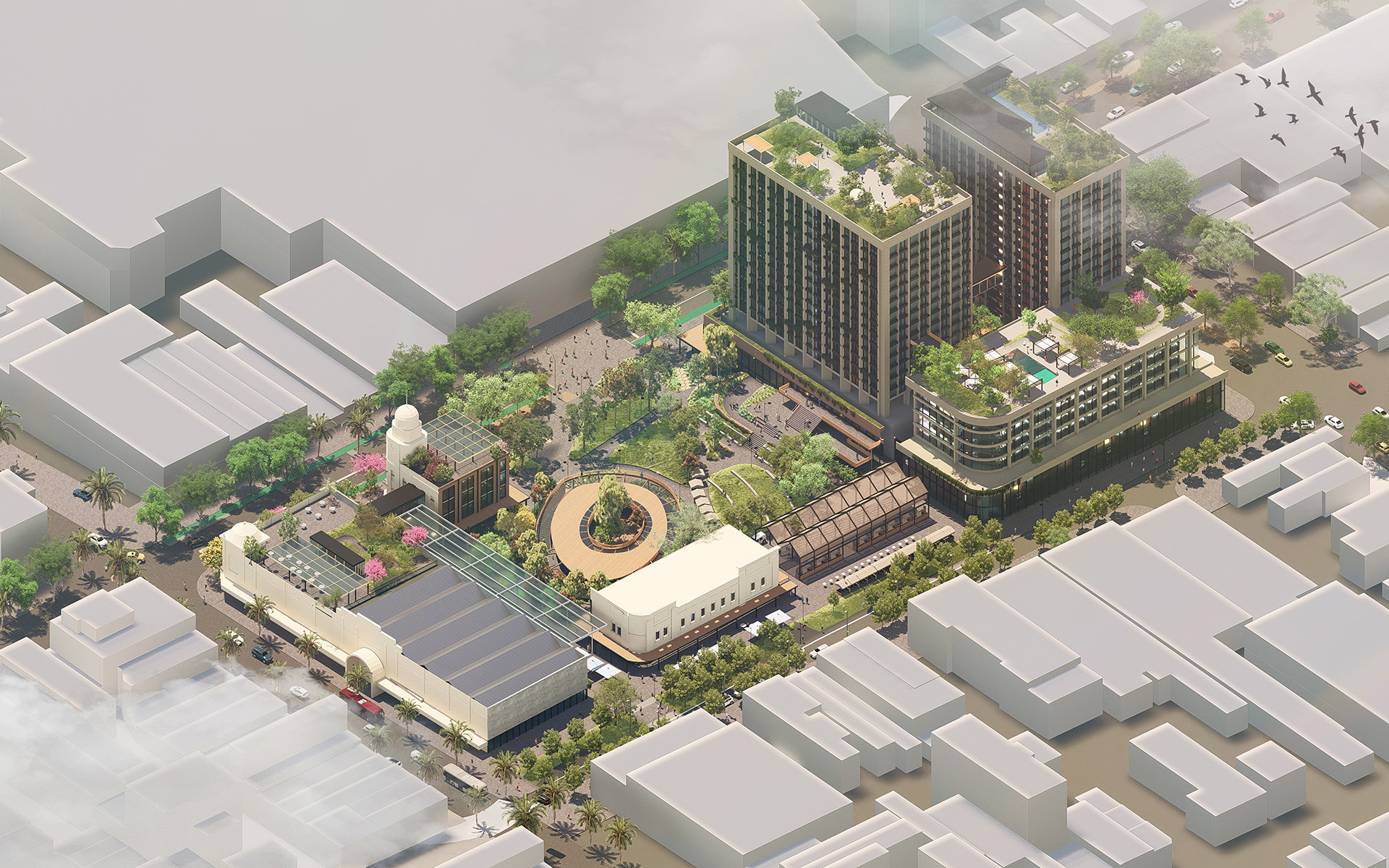Reading
As a practice with a national presence, we celebrate IWD in many ways – connecting with other industry partners, acknowledging our collaborators. And holding space for important conversations that challenge and motivate.
When we reach International Women’s Day every year, it’s a moment for people everywhere to reflect, acknowledge and lift up those women in our industry – and our broader community and personal lives – who have been quietly striving for the 364 days in between, often without any goal for recognition, but to just set out and get the job done.
This year’s UN Women Australia theme “March forward: For ALL Women and Girls” reminds us to think about who IWD is really for: ALL women and girls.
Crucially, the theme highlights those who are perhaps not able to participate in celebrations but who are just as much a part of these collective efforts, and who also feel the direct effects on their daily lives. It should not be a privilege to participate in a day that celebrates women and girls regardless of their current access to rights, equality, and empowerment, and yet we recognise that in many cases, it is.
What does this mean at Tract?
For our team of planners and designers with connections to places and communities right across Australia, this raises two thoughts:
- How do we ensure we are considering ALL women and girls in the work we’re doing, and
- What can we do to effect change not just for the women who currently live in the spaces we design, and the cities we plan for – but the next generation of women…the girls?
We are fundamentally aware of the importance of representation within our organisation – and our design and planning processes – to help ensure this consideration is integral. Not an afterthought.
As a business, Tract feels strongly that advancements in gender equity must be shown through actions, which is why we have dedicated efforts to improving diversity across all levels of our business.
What has changed?
Since 2012, the ranks of our Senior Principals have seen female representation increase from 12.5% (ratio of just 1 : 8) to 40% (now 14 : 21). In just 6 years we have achieved a 10% increase in women in our leadership team nationally (now with a 45:55 female to male split), and 55% of our total staff nationally are women.
We know these women, and all those who have been recently promoted into these roles are critical to the future of Tract, and continue to play an important role in addressing this gap.
We have also recently released an updated parental leave policy that seeks to close the superannuation gap for those taking parental leave, as we believe that no one should be left behind, and want to ensure our actions match this.

How does this affect the way we work?
When we develop strategies, policies, and master plans, often these future worlds we’re planning for won’t be realised for many years, and they are gradually layered and interwoven with the complex places that have already been built over many previous generations – and their embedded inequities and privilege.
For over 50 years, our ethos has been to integrate a range of perspectives through the design process – and consider always what it will be like to live in the places we create. Still today, the sharing of knowledge and perspectives across disciplines, backgrounds and ranges of experiences, is fundamental to the way we work. As we become a more diverse organisation, this practice continues to deepen.
Celebrating IWD across Australia
Our Adelaide team joined with industry colleagues at the annual NAIWIC SA Lunch, and our Sydney team attended the PIA IWD Breakfast, hearing from Louise Cantillon, the British Consul General and Deputy Trade Commissioner for Asia Pacific (Australia and New Zealand). Operating in spaces of negotiation which are often male-dominated, Louise shared the importance of finding ways to ensure women are heard in challenging environments, and the valuable skill of ‘interrupting better’.
In Queensland, Tract was proud to sponsor the Planning Institute of Australia’s Queensland IWD Breakfast – a hybrid event held simultaneously across Brisbane, Gold Coast, Mackay and Cairns. The esteemed panellists (Dame Quentin Bryce, Amanda Yeates, Marco Renai and Michelle Moss) shared valuable insights alongside personal messages from Deputy Premier Jarrod Bleijie MP and Peta Harwood GAICD (2024 Qld Outstanding Woman in Planning).
Despite their incredibly different backgrounds, there were shared key messages across the conversation. In a profession where results are not instant, they reminded us that change takes time, patience, perseverance, guts and leadership. They called for the need to be fearless and daring in making decisions that make good sense for the long-term, and the need to collectively work in solidarity across gender, race, political beliefs to truly create meaning change and better futures.
In Victoria, Senior Principal Town Planner Mia Zar was nominated for the PIA VIC Women in Planning Leadership Award, in recognition of her outstanding contribution to the planning profession – celebrated at the PIA Victoria IWD Breakfast in Melbourne.



An Evening of Conversation with Dr Joëlle Gergis
Finally, we hosted a hybrid in-person and livestreamed evening of conversation with award-winning climate scientist, writer, and IPCC Lead Author Dr Joëlle Gergis – with our teams tuning in from across the country.
Wurundjeri Elder Annette Xiberras gave a Welcome to Country and shared her own personal reflections on challenges as a female cultural heritage advisor in a male-dominated sector, and the impacts of climate she has witnessed on Country over the past few decades.
Hosted by Principal Town Planner, Elle Harrington and moderated by Associate Town Planner, Claire Whelan, the conversation unpacked this year’s theme, ‘March Forward: For ALL Women and Girls’, its intersection with the global climate emergency, and the power that women hold in driving change.
Joëlle exemplified this very stoicism and resolve, continuing to march forward despite the chaos of Cyclone Alfred affecting her own community over the recent days.
While Dr Gergis’ warning was resounding – “the problem is bad, it’s getting worse, and it hasn’t stabilised yet” – as one of her books “Humanity’s Moment” urges, the ‘case for hope’ is strong and our role as built environment professionals provides us with the opportunity to be front-line advocates to improve equality and drive lasting change.
We were reminded that progress is not just about reflection but about taking decisive, bold steps to turn our commitments into action.
Not just for International Women’s Day, but for the 364 days in between.
Continuing to March Forward in the built environment
Despite the sweeping reforms we have seen nationwide in the past few months, and the urgency to address the need for secure and affordable housing as a precursor to liveable and productive lives that support civic participation, their implementation will also take time to unfold. We have a critical role as built environment practitioners – to advocate for the unfolding to deliver on these promises, in the interests of ALL.
In addition to striving for gender equity in our organisation, we continue to work in parallel towards our goal of Climate and Biodiversity Positive Design in line with our Position Statement, and through the Climate Resilience Index developed with OneMap to support targeted action towards climate resilience across Metropolitan Melbourne’s neighbourhoods.
We celebrate IWD with our colleagues and collaborators, and extend our hope, courage and perseverance as we keep marching forward together for women and girls everywhere.
Find out more about our commitment towards Climate and Biodiversity Positive Design, and explore the CRI tool.
Find out more about Dr Joëlle Gergis’ work here.




